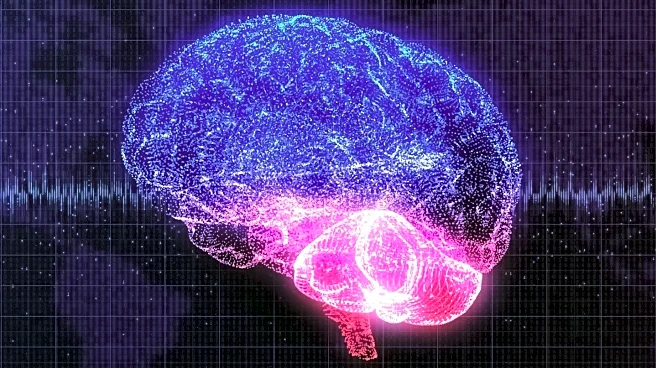What's Happening?
A team of researchers from the University of Pennsylvania, University of Pittsburgh, and Scripps Research Institute have discovered a brain circuit that can potentially switch off chronic pain. The study, published in Nature, highlights the role of Y1 receptor (Y1R)-expressing neurons in the lateral parabrachial nucleus (lPBN) in managing persistent pain states. These neurons, which also process signals related to hunger, fear, and thirst, exhibit tonic activity during prolonged pain. The research suggests that behavioral interventions such as exercise, meditation, and cognitive behavioral therapy may influence these brain circuits, offering new avenues for pain management.
Why It's Important?
Chronic pain affects approximately 50 million people in the United States, posing significant challenges to healthcare systems and impacting quality of life. The discovery of a brain circuit capable of modulating pain responses could revolutionize treatment approaches, moving beyond pharmacological solutions to include behavioral interventions. This research opens up possibilities for developing new therapies that target brain circuits directly, potentially reducing reliance on pain medications and improving patient outcomes.
What's Next?
Future research may focus on using Y1 neural activity as a biomarker for chronic pain, aiding drug developers and clinicians in creating targeted treatments. Additionally, exploring how lifestyle changes can alter neuron activity could lead to non-pharmacological interventions for chronic pain management. The study encourages further investigation into the flexibility of brain circuits and their role in pain perception, potentially leading to personalized treatment strategies.
Beyond the Headlines
The study highlights the brain's ability to prioritize survival needs over pain, suggesting a built-in mechanism for managing pain signals. This insight could lead to ethical discussions on the balance between pharmacological and behavioral treatments, emphasizing the importance of holistic approaches to pain management. The research also underscores the potential for interdisciplinary collaboration in neuroscience, psychology, and medicine to address complex health issues.











